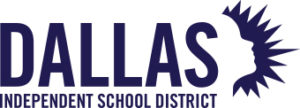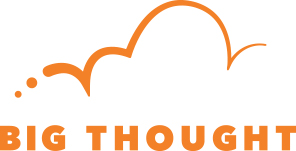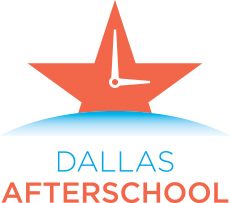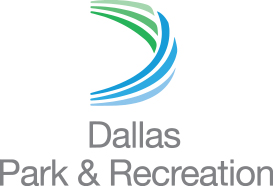The SEL Dallas team recommends the following list of best practices to build collaborative partnerships that support sustainability and develop aligned SEL programs, practices, professional development, and related coaching for successful SEL implementation at a campus.
Best Practice 1: Establish consistent and honest communication from the start of the partnership.
All partners should describe their goals for students and staff, priorities, and information about what their “typical day” looks like or other general operating expectations. Regular communication also provides all partners with the chance to share feedback on progress and / or identify if there are opportunities for improvement. Consider scheduling regular check-in times among relevant partners to ensure that SEL-focused conversations are timely, relevant, and iterative over the course of a school year.
Implementation Recommendations
- Develop Initial Vision and Priority-Setting: At the start of the school year, encourage both in- and out of school time leaders to meet and discuss the overarching vision, guiding principles, priorities, and common messaging around SEL at their campus to then share widely with school-based and external partners.
- Ensure Common Language: Remember to identify common language and clarify SEL terminology for both in- and out of school time leadership and staff members so that everyone “speaks the same language” in regards to training, reflection, and continuous improvement of SEL practices at your campus. If a campus has specific culture practices (a chant, greeting, house system, etc.), share that information with OST partners to potentially incorporate into afterschool programming.
- Understand Roles & Responsibilities: Clarify and standardize partner roles and responsibilities, especially to refine the capacity of SEL Specialists (or other out of school time coaching / training partners) as they connect out of school time planning and training with in-school efforts. Continue to clarify roles and responsibilities as needed as SEL implementation evolves.
- Schedule Check-In Time: Lead regular check-in meetings and ongoing planning discussions among multiple levels of in- and out of school time stakeholders (campus principals, assistant principals, district SEL Coordinator, instructional coaches, OST leaders, parent / family representatives, etc.) For example, Big Thought facilitated weekly meetings with Out of School Time Partners and In-School Partners to build community with each other, discuss campus SEL updates, troubleshoot and support SEL implementation, and conduct overall planning for SEL during the school year.
Best Practice 2: Align In and Out of School Time training and goal-setting to provide consistency for students and staff.
When in-school and OST partners align their time and efforts around common SEL training and subsequent continuous improvement, the entire campus strengthens its collective SEL knowledge and reinforces student SEL skill development across an entire school day (for example, all staff members at a campus are focused on implementing Signature Practices during the fall semester). We recommend inviting in-school and OST leadership to all SEL implementation discussions and related decision-making meetings to ensure that multiple perspectives are shared and common goals are identified for an entire campus.
Implementation Recommendations
- Implement Comprehensive SEL: Provide training and subsequent coaching around the application of all four primary elements of our approach: culture and climate, explicit skills instruction (Sanford Harmony or another designated SEL-focused curriculum), content integration, and family engagement. Depending on the SEL skill and knowledge level of the campus, goals and training may be scaffolded over time to allow for emphasis in one or two areas of the approach before moving on to mastering one or two other areas of the approach.
- Schedule Ongoing Learning Time: Note that SEL training and learning should be an ongoing and iterative process, therefore it may be useful to schedule recurring SEL-focused training time during the school year, build into staff meeting agendas, etc.
- Collaborate with External Support: Facilitate ongoing site-based support for campuses by having consistent collaboration with SEL Coordinator from Dallas ISD and SEL Site Coordinator from Big Thought (or other OST representative).
- Develop and Implement an In / Out of School Time Pacing Guide for Explicit Skills: Establish and implement a pacing guide for Sanford Harmony (or other designated SEL curriculum) to align explicit skill instruction during in- and out of school time. It is also beneficial to share expectations and timing around SEL explicit skills instruction (ex: explicit skills instruction every Tuesday, September will be focused on Unit 2, etc.) so that explicit SEL concepts are reinforced throughout the school day and during after school time.
- Apply SEL Learning Standards: Use SEL Learning Standards to clarify what students and adults should know and do within each of the five SEL competencies as well as provide ongoing support, coaching, and reflection around content integration with SEL.
Best Practice 3: Build an SEL Steering Committee with diverse representation.
When you recruit participants for a Steering Committee, remember to include all relevant in- and out of school time partners who may contribute to SEL implementation, training development, and refinement of practices. The Steering Committee is also a capacity-building opportunity to build a larger team of SEL experts on a campus and collect multi-faceted input around decision-making. (See Section V for detailed information on Steering Committees)
Implementation Recommendations
- Establish an SEL Steering Committee: Establish a new group (or designate a current campus-based Culture and Climate committee, other structure committee) to build campus leadership, buy-in, and capacity around SEL implementation. At the start of the year, develop a schedule of meetings for the entire school year to ensure that participants honor that time in their schedules.
- Review Multiple Data Sources: During Steering Committee meetings, review multiple sources of data (student behavior, Dallas ISD climate surveys, and OST program quality data) to inform decision-making and planning. Note that Out of School Time utilizes different evaluation methods for continuous improvement including but not limited to AQuA and Six Dimensions of Quality (6DQ).
Best Practice 4: Identify ongoing opportunities to communicate the value and progress of SEL implementation as well as contributions of each partner.
Campuses and OST programs may have various avenues for communicating about their work: regular staff meetings, parent / family events, social media, online / print newsletters, and other announcements.
Implementation Recommendations
- Leverage Current Communication Avenues: Consider incorporating ongoing SEL updates and partner highlights via current communication methods for the benefit of staff members, parents and caregivers, and students. Messages may be tailored for different audiences (staff, students, parents / caregivers) but an ongoing emphasis on SEL news and progress demonstrates a commitment to SEL implementation and growth.
- Facilitate opportunities for in- and out of school time to showcase their respective strengths and expertise: Consider asking in- and out of school time staff members to share their favorite welcoming activities to build a campus-based SEL resource bank, host a “back to school” event for in- and out of school staff to meet each other, encourage in and out of school staff to visit their partners for a learning walk (for example, having in-school staff visit a day of afterschool programming to see how SEL is incorporated in the program). All of these touchpoints allow staff members to develop relationships, see SEL practices applied in different ways, and support students in experiencing a cohesive continuum of SEL practices across their day.










